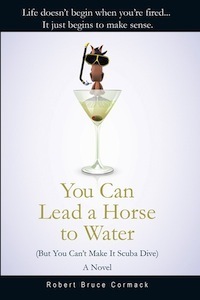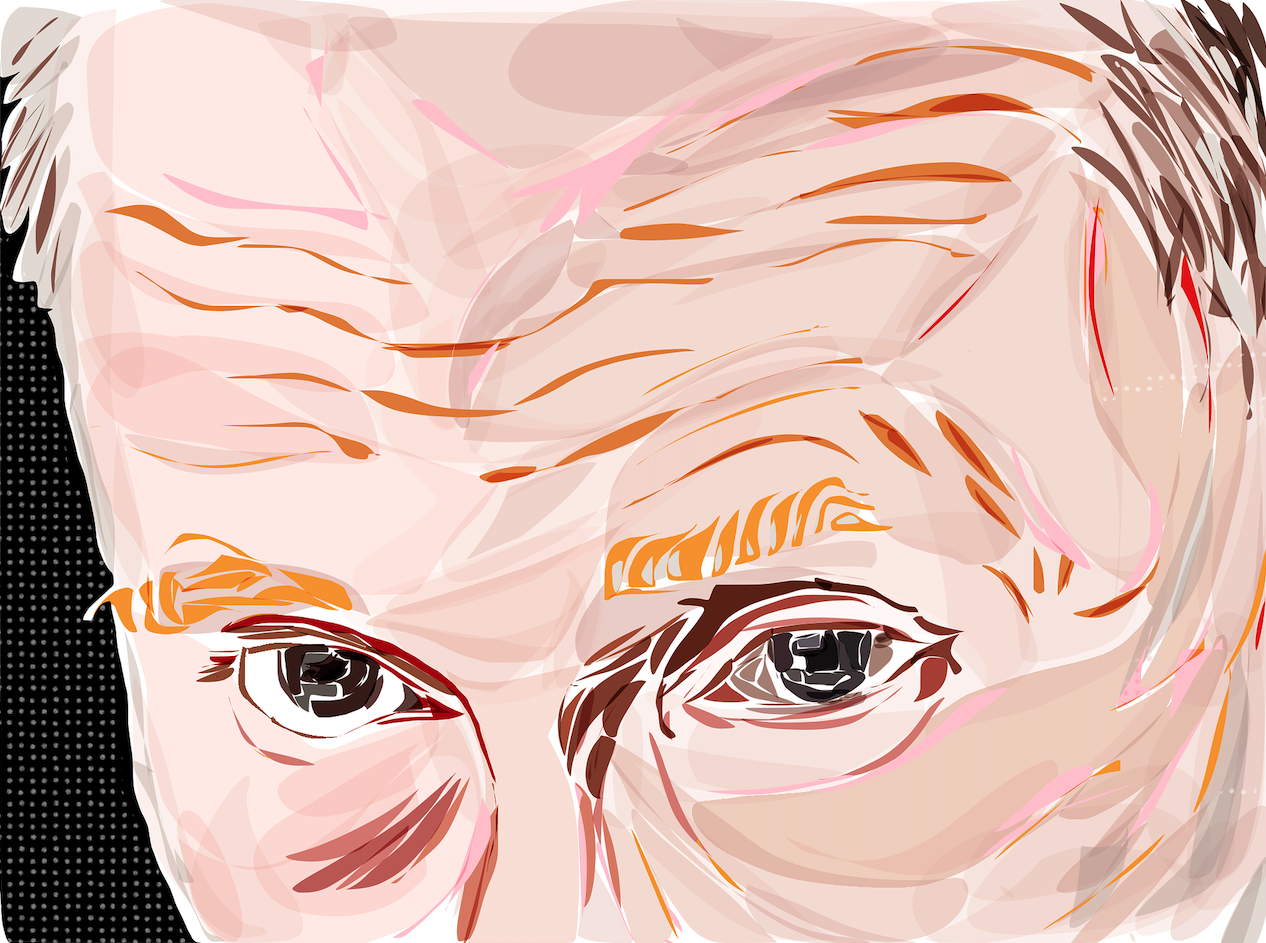Why Our Brains Scare Us

Back in 2002, the National Post ran a full page article called: “In Hollywood, Anxiety is the New Alcoholism,” featuring a large photo of Tony Soprano (James Gandolfini), a mob boss dealing with panic attacks.
The article described how The Sopranos and movies like Wonder Boys and Matchstick Men depicted anxiety with uncanny accuracy (much like Days of Wine and Roses did with alcoholism back in the sixties).
One of the lines quoted was Tony telling his psychiatrist (Lorraine Bracco): “It felt like a can of ginger ale going off in my head.” Michael Douglas, in Wonder Boys, calls his fainting spells “those little episodes.”
Both are apt descriptions of what’s known as parasympathetic activity. This is simply the brain's way of reacting to stress.
For instance, when you feel dizzy during a panic attack, your brain is sending available blood to your muscles. When you’re short of breath, it’s figuring how much oxygen you need to hightail it out of there.
We’ve all heard the term “fight or flight.” After centuries of wars, famine, floods, dictatorships, and essentially bad days, our genomes have stored an amazing physiological list of ways to cope and survive.
In fact, if we ever have another Viking invasion, you’ll be surprised how well your body reacts.
Panic, in essence, is the brain trying to scare you. Not in a bad way. People who experience panic attacks actually have highly-formed warning systems. Think of a car with sophisticated diagnostics. It tells you the problem before you end up at the side of the road calling a tow truck. Brains do the same thing.
Here’s another interesting fact about panic attacks (something Tony Soprano certainly finds out). Nobody’s ever died from one. On the contrary, your body is operating at peak performance.
If those Vikings do attack, you’ll be out of there in a jiffy.
You should also never envy people who don’t get panic attacks. As much as they may seem better suited to this world of stress, they’re not. They’re actually worse off, and I’ll tell you why.
Every day, people suffer strokes, cardiac arrest, all sorts of ischemic events, causing mortality rates that exceed any war in history (approximately 500,000 people die of heart disease in the U.S. each year).
What causes these deaths more than anything else? Lousy warning systems. Cardiologists admit, very few people have any idea they’re at risk—even with regular checkups, bringing cholesterol down, etc.
How many times have we heard: “Imagine Harry dropping dead like that. He was healthy as a horse.” Actually, Harry only thought he was healthy as a horse. Either he ignored his body or his body ignored him.
That ain’t gonna happen if you suffer from anxiety. Your brain won’t let you ignore it. That’s the whole point. The dizziness, the shortness of breath, the tingling in hands and feet, that's your brain doing everything short of smacking you upside the head.
Considering all your brain is doing for you, you’re ahead of the game. I know it doesn’t feel like it when you have a panic attack. It’s no fun. But if you understand what’s actually happening—or not happening—coping with panic is easier than you think. Let’s dispel some common myths first:
1) What if I pass out in the middle of a presentation?
Not going to happen. Fainting is a drop in blood pressure. With a panic attack, blood pressure actually goes up. You’re probably the last person in the room who’s going to faint.
2) I need a washroom (like, this minute)
When blood circulates at an increased rate during stress, the bladder gets more blood, too (brains are all about equal opportunity). Again, no big deal. I have a friend who conducts seminars. Halfway through his presentation, he’ll say: “I need a washroom break. Anyone else?” Half the room is out of there like a shot.
3) Why do I feel like I’m having a heart attack?
Maybe you are. More likely, though, you’re just not used to your heart pumping without physical activity involved. Since you’re not jogging or running up stairs, you figure it must be a heart attack. Are you having a heart attack every time you engage in sex? Same deal.
4) I feel like I’m ‘outside’ myself.
Brains aren’t perfect. In fact, they’re lousy chemists. With stress, the brain figures certain organs need more oxygen. Sometimes it goes a little overboard. In medical terms, it’s called ‘hyperventilating,’ which can produce dizziness, vertigo and a feeling of being "outside" yourself. Relax. Your brain is just stoned.
5) I have this weird tingling in my fingers.
In medieval times, whenever we felt threatened, we’d either run or start swinging an axe. Since we don’t carry around axes anymore, the brain figures we need oxygen in more appropriate areas—like our legs. Next time you feel that tingling, start swinging something. The tingling goes away (as well as people around you).
6) Am I going crazy?
Remember the old saying: “God only gives what you can handle”? The brain works the same way. Panic is complicated. It takes work to understand why it’s scaring the bejesus out of you. But your brain also knows you can handle it. Otherwise, you’d be in a straightjacket. Brains don’t want you in a straightjacket. They’d rather have something more constructive to do. Here’s an interesting fact. When the Centre for Addition and Mental Heath at the University of Toronto did an experiment on brain activity, they discovered that CBT (cognitive behavioral therapy) lit up the same areas of the brain as anti-depressants.
So the next time you feel dizzy, anxious, tingling or that "feeling of doom," take a walk, meditate, do yoga, practice CBT. Believe it or not, that's what your brain wants you to do.
If I can add some self-promotion here, pick up my novel. The main character, Sam Bennett, learns a lot about his own panic attacks, especially how new pursuits can be more therapeutic than any drug.
How are you dealing with stress and panic? Let me know at: rcormack@rogers.com
Robert Cormack is a freelance copywriter, novelist and blogger. His first novel: "You Can Lead a Horse to Water (But You Can’t Make It Scuba Dive)" is available online and at most bookstores. Check out @YuccaPublishing and @SkyhorsePublishing for more details.

Articles from Robert Cormack
View blog
This world is getting very stupid and we might die wondering if this was the plan. · “Life is like a ...

Without selling yourself short. · “We marry, have kids, do our jobs, provide food, education. Job do ...

It could be worse than losing. · “We are what we pretend to be, so we must be careful what we preten ...
Related professionals
You may be interested in these jobs
-
Systems Engineer
Found in: Talent CA C2 - 3 days ago
Moneris Montreal, Canada Full timeYour Moneris Career - The Opportunity · The DevOps Systems Engineer will provide hands-on experience in design and engineering efforts implementing DevOps Platforms, common set of products and services used across development and infrastructure teams. This includes contributing t ...
-
Account Executive
Found in: Zoho Direct Apply - 6 days ago
Direct apply
R2i Remote, CanadaWelcome to the world of R2i · The Canadian IT company, certified Remarkable Employer, with employee well-being at the heart of our growth. We are renowned experts in cloud computing, IT datacentre infrastructure solutions and 24/7 managed services. Get a glimpse of who we are and ...
-
operational officer
Found in: Talent CA 2 C2 - 1 day ago
PACIFIC VALLEY ENTERPRISES INC. Surrey, CanadaEducation: Secondary (high) school graduation certificate · Experience: 1 year to less than 2 years · Tasks · Review and evaluate new administrative procedures · Delegate work to office support staff · Establish work priorities and ensure procedures are followed and deadlines ar ...



Comments
Robert Cormack
7 years ago #2
Thanks, Sarah. I hope they do, too.
Sarah Elkins
7 years ago #1